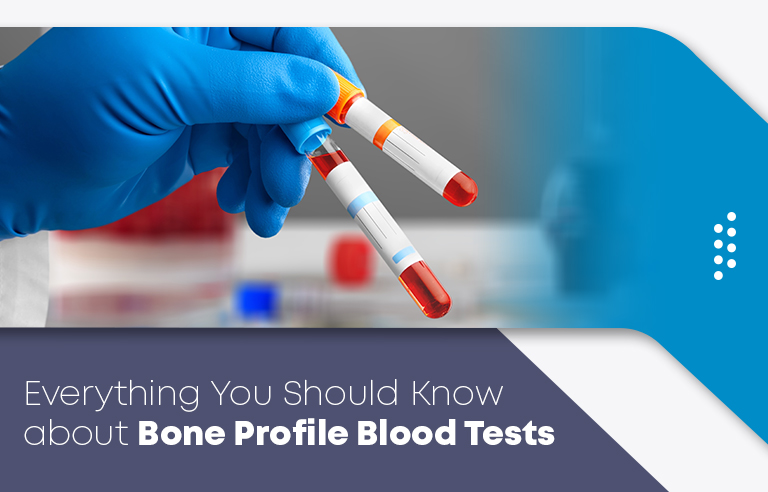
A bone profile blood test evaluates the enzymes, minerals and proteins in your bones. This enables doctors to evaluate your bone structure. By conducting a bone profile blood test, a doctor can identify your risk of bone diseases and bone cancers.
Blood Tests and Bone Health
Your blood is responsible for carrying oxygen around the body. It flows through the tissues and organs in your body. This makes the blood a useful diagnostic tool for doctors and healthcare professionals. Read this blogpost to get a better idea about various blood tests. Make an appointment to see your private GP if you feel ill or in any way worried about your health.
What is bone profile blood test?
A bone profile test calculates and evaluates the proteins, minerals and enzymes present in your bones. This vital test can monitor the health of your bones and ensure they are developing and/or repairing themselves properly.
What is the use of bone profile?
Healthy bones are essential for posture, movement and overall well-being. Bones will become weak naturally as we age. For this reason, older people would be advised to undergo bone profile blood test.
As well as overall health, the bone profile can help to evaluate and monitor some specific conditions such as:
- Osteoporosis – This condition makes bones brittle and fragile making them more likely to break. As we age, we begin to lose bone density though it can also be lost due to excessive drinking, hormonal issues or eating disorders.
- Paget’s disease. Another bone disease is Paget’s disease that affects bone renewal - how the bone tissue replaces itself. If a doctor suspects you have this disease, you will possibly also need a Vitamin D test.
- Bone cancer – This is a rare form of cancer which is characterised by swelling and bone pain. Bones may also break very easily.
- Liver disease and thyroid problems – Here a bone profile may help to diagnose thyroid problems and parathyroid which plays a vital role in maintaining the balance of phosphorus and calcium levels. It may suggest problems with the liver too, where many proteins and enzymes are produced.
What does a bone profile test for?
The bone profile blood test can be used to determine a wide range of different bone conditions as well as diseases that do not relate directly to the bones.
There are four main minerals that blood profiling measures. These are discussed below with reference ranges for each of them.
- Albumin. This protein is created in the liver but low levels of albumin are related to lower bone density. This test can help to identify osteoporosis. The normal range is 35-50 g/L
- Calcium – This bone profile measures calcium in your blood. This is among the most important minerals for bone health. The normal levels of calcium should be 2.2-2.6 mmol/L
- Phosphate – These are chemicals that have phosphorus in them which is vital for bone growth. The normal range is between 0.74 and 1.4 mmol/L
- Alkaline phosphatase (ALP) – This enzyme is present in liver and bone cells and can identify liver ailments or bone disorders. The normal range should be 30-130 u/L for adults
Finally, a bone profile can test for globulin, total proteins and urea.
What you should know about taking the test.
Your doctor at GP London will extract a sample of your blood. The blood will then be put in a vial and sent off to the laboratory for further analysis. It may take from 4 to 72 hours before you get your results.
Unlike some other blood tests, you do not have to fast before the bone profile blood test. If you are taking calcium supplements, it is advisable not to take them before the test.
It will be best if you tell the doctor about any supplements you are taking. This will include – calcium, Vitamin D supplements, other vitamins or minerals because they may affect the test results.
A bone profile blood test can help to identify your risk of hormonal imbalances, bone disorders and liver problems. It is important to know your bone profile result so that you have the correct information of your present condition.



-min.jpg)

